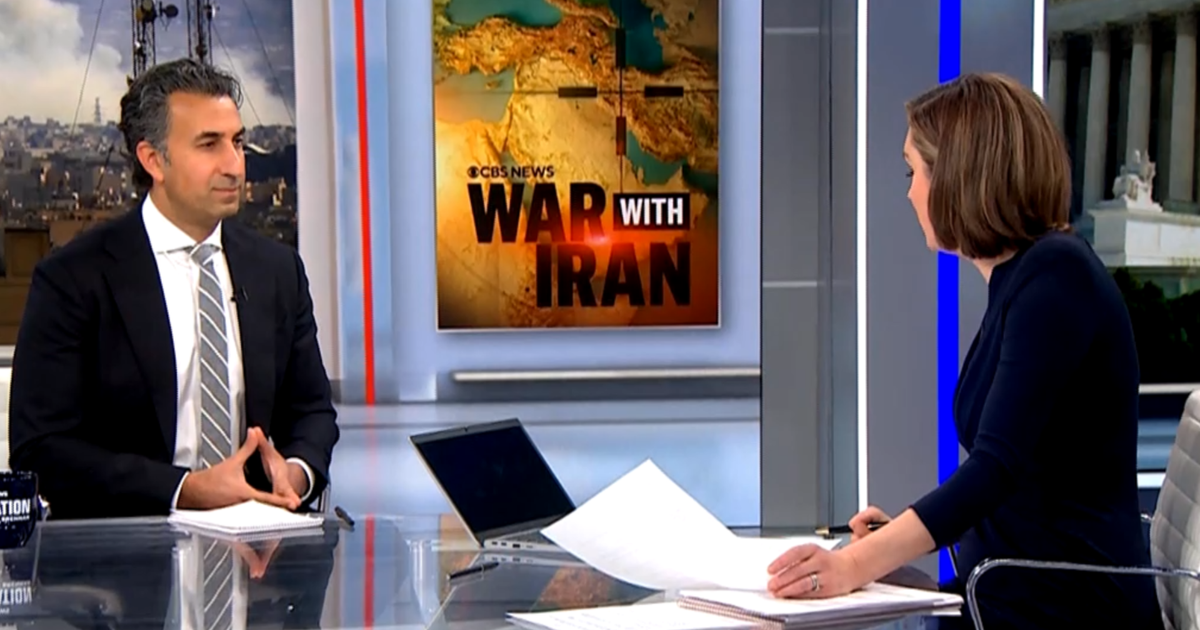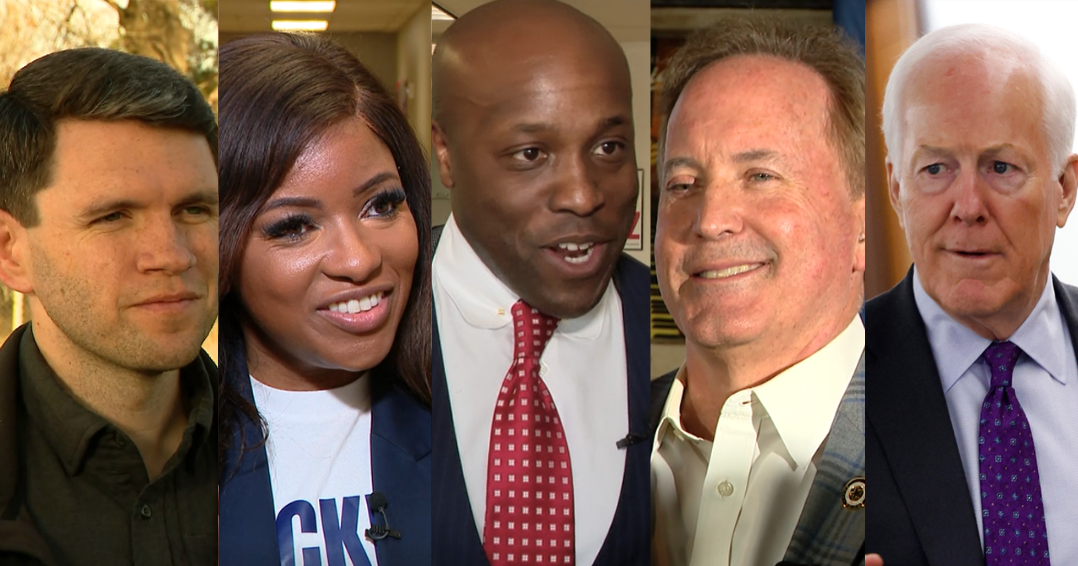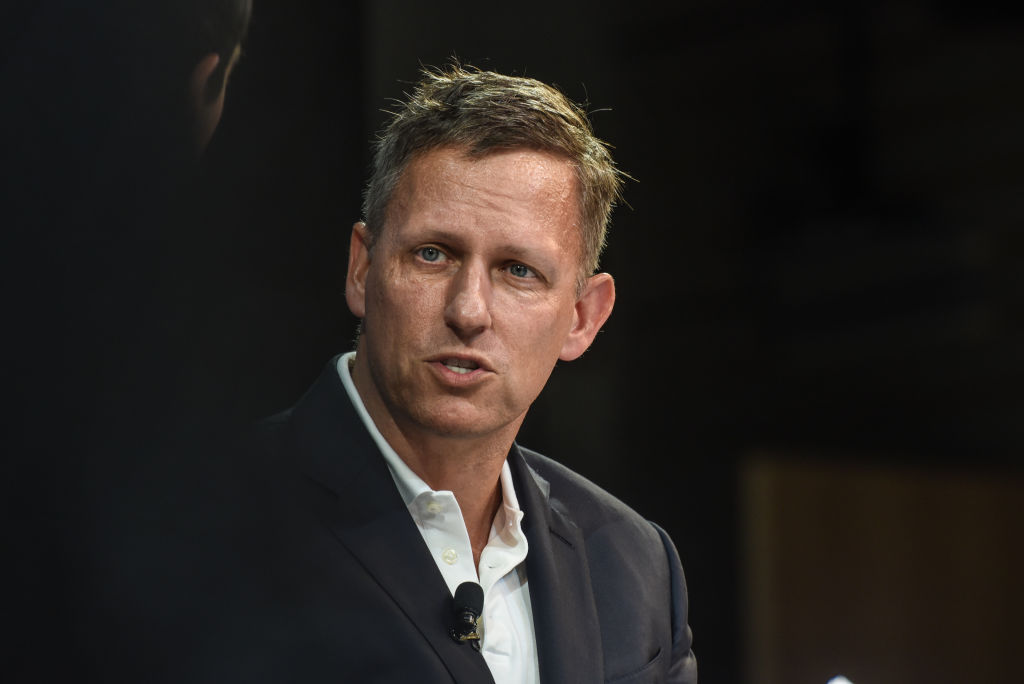Transcript: Bernie Sanders on "Face the Nation," February 9, 2020
The following is a transcript of an interview with Sen. Bernie Sanders that aired Sunday, February 9, 2020, on "Face the Nation."
MARGARET BRENNAN: Good morning and welcome to FACE THE NATION. We are still not really sure exactly who won Iowa, but CBS News has so far awarded Vermont Senator Bernie Sanders and former South Bend, Indiana mayor Pete Buttigieg an equal number of delegates. With just two days from the New Hampshire primary, our CBS News Battleground Tracker shows the two are at the top in New Hampshire, too. Vermont Senator Bernie Sanders, who won the New Hampshire primary four years ago, is at the very top with 29 percent. Former mayor Pete Buttigieg is running behind him. He's at 25 percent. We'll have the full results of our poll later on in the broadcast but we begin with those two top candidates. Senator Bernie Sanders is up first and he joins us from Manchester. Good morning to you, Senator.
SENATOR BERNIE SANDERS: Good morning, MARGARET.
MARGARET BRENNAN: How do you plan to keep that edge and win on Tuesday?
SEN. SANDERS: We are running all over the state. We're talking to as many people as we can. We're talking about what our agenda is, which is an agenda that speaks for the working families of this country, an agenda that is prepared to take on the powerful special interests that have so much influence over the economic and political life of our country. And by the way, we're going to contrast our views with Mayor Buttigieg. And one of the areas of contrast, to be honest with you, is that last count he has about forty billionaires who are contributing to his campaign, the heads of- the CEOs of the large pharmaceutical industries and the insurance companies and so forth.
MARGARET BRENNAN: Why does that matter?
SEN. SANDERS: Well, on the other hand- oh, it matters enormously. That is precisely the problem with American politics. When you have the heads of large pharmaceutical companies contributing to your campaign. You are not going to aggressively deal with the fact that in some cases we pay 10 times more for the same exact drugs as our friends in Canada or in Europe pay. You're not going to take on the collusion and the corruption of the drug companies who are ripping us off every single day. One out of five Americans cannot even afford the prescription drugs their doctors prescribe. So do you really think that when somebody gets contributions from the CEOs of drug companies, they're going to stand up to the greed and corruption of that industry? I don't think so.
MARGARET BRENNAN: But--
SEN. SANDERS: But it's not only the pharmaceutical industry--
MARGARET BRENNAN: But when you were standing on that--
SEN. SANDERS: It's other industries as well.
MARGARET BRENNAN: When you were standing on that debate stage on Friday, you said that Democrats would come together and support a nominee. Are you saying--
SEN. SANDERS: Yes. Yeah.
MARGARET BRENNAN: --Bernie Sanders will support Pete Buttigieg if he ends up being the nominee--
SEN. SANDERS: No, I--
MARGARET BRENNAN: --or even Mike Bloomberg--
SEN. SANDERS: Absolu--
MARGARET BRENNAN: --a billionaire himself?
SEN. SANDERS: I- no, I did not say that at all. I think all of them will be far preferable to Donald Trump, who's the most dangerous and corrupt president in the modern history of this country.
MARGARET BRENNAN: So you would--
SEN. SANDERS: We have got to defeat Trump.
MARGARET BRENNAN: Sorry to be clear--
SEN. SANDERS: And what I have--
MARGARET BRENNAN: --you would support either of them if they end up being the nominee?
SEN. SANDERS: MARGARET, I have said from the first day of this campaign that it is absolutely imperative that we defeat Donald Trump. Of course I will support who the Democratic nominee is. But in the Democratic primary process, I will distinguish myself, differentiate myself from the other candidates. And one of the areas that we- I differentiate myself is we have raised more campaign contributions from more Americans averaging all of 18 dollars and 50 cents than any candidate in the history of this country.
MARGARET BRENNAN: Your campaign reported some inconsistencies in the results out in Iowa, as did two other campaigns. Columnist Peggy Noonan wrote this. "They can't run a tiny caucus in a tiny state, but they want us to believe they can reinvent American health care." How damaging is it that the Democrats couldn't get this right?
SEN. SANDERS: It is damaging. And I- it really saddens me because, you know, I went all over the state of Iowa and there are beautiful people, good people who take their responsibilities seriously. And the fact that the Iowa Democratic Party that has received all kinds of money, could not count those votes in a timely matter is really a sad state of affairs.
MARGARET BRENNAN: Right, but you're advocating for the empowerment of the U.S. government to take over the entire health care system. This just optically--
SEN. SANDERS: No. Hold it- hold it, MARGARET.
MARGARET BRENNAN: --looks like the party--
SEN. SANDERS: MARGARET- MARGARET--
MARGARET BRENNAN: --can't run--
SEN. SANDERS: --MARGARET- MARGARET--
MARGARET BRENNAN: --it's own caucus.
SEN. SANDERS: MARGARET. MARGARET, that's not a true statement. I'm not advocating for the United States government to take over the healthcare system. What I am advocating for is an expansion of Medicare. Medicare exists.
MARGARET BRENNAN: Right,--
SEN. SANDERS: But I want to expand it over a four year period--
MARGARET BRENNAN: --which would be administered by the U.S. government--
SEN. SANDERS: Precisely.
MARGARET BRENNAN: --and your administration, if you win.
SEN. SANDERS: Just as Medicare is right now. But it- but it's not a takeover. People will still go to the same doctor. They'll go to the same hospital. We will substantially lower the cost of prescription drugs. Cost per person will go down.
MARGARET BRENNAN: Right. But what- but I think--
SEN. SANDERS: People will be paying less for healthcare.
MARGARET BRENNAN: But--
SEN. SANDERS: It's not a take over.
MARGARET BRENNAN: --the nub of the criticism, though, is that this is a question of competency. And straight out of the gate, how do you reassure the public that the party whose ticket you are--
SEN. SANDERS: Okay.
MARGARET BRENNAN: --running on can do this and do this successfully in the states ahead? Nevada is already--
SEN. SANDERS: Well--
MARGARET BRENNAN: --saying when it comes to their caucuses, they're short of volunteers. Our campaign reporter says they're short a thousand caucus chairs and they might have to even hold two caucuses at once. This doesn't look efficient.
SEN. SANDERS: Well, alright, that may well be the case, but let's get back to the United States government. I'm not the chair of the Nevada Democratic Party.
MARGARET BRENNAN: You told my colleague Norah O'Donnell recently on CBS that you couldn't put a price tag on your health care plan and your proposals. But I want to ask you for some clarity here, because back in July, you told The Washington Post "Medicare for All" would cost between 30 to 40 trillion dollars over--
SEN. SANDERS: Right.
MARGARET BRENNAN: --10 years. Do you still trust those--
SEN. SANDERS: Right.
MARGARET BRENNAN: --numbers and those estimates?
SEN. SANDERS: Sure, all that I said- the answer is yes. But all that I said is anybody who tells you what anything is going to cost in health care is- is not telling you the truth. There is so much, it's so big. If we do nothing, what the Health and Human Services--
MARGARET BRENNAN: So it's not 30 to 40 trillion?
SEN SANDERS: Over a 10 year period.
MARGARET BRENNAN: OK.
SEN. SANDERS: Sure. I mean, the problem is we're already spending about 50 percent of healthcare dollars already come from the federal government. We've got to add the other 50 percent. But here's the main point that people should appreciate. If we do nothing, according to Health and Human Services, we're going to be spending 50 trillion dollars. We spend twice as much per capita on healthcare as do the people of Canada or Europe. So, of course, we can provide healthcare to all people spending less than we are doing now because we're going to end the hundred billion dollars in profiteering that goes to the drug companies, that goes to the--
MARGARET BRENNAN: OK.
SEN. SANDERS: -- insurance companies and the hundreds of billions of dollars in administration of thousands of separate plans. Enormously complicated and wasteful system.
MARGARET BRENNAN: Senator Sanders, thank you for your time.



